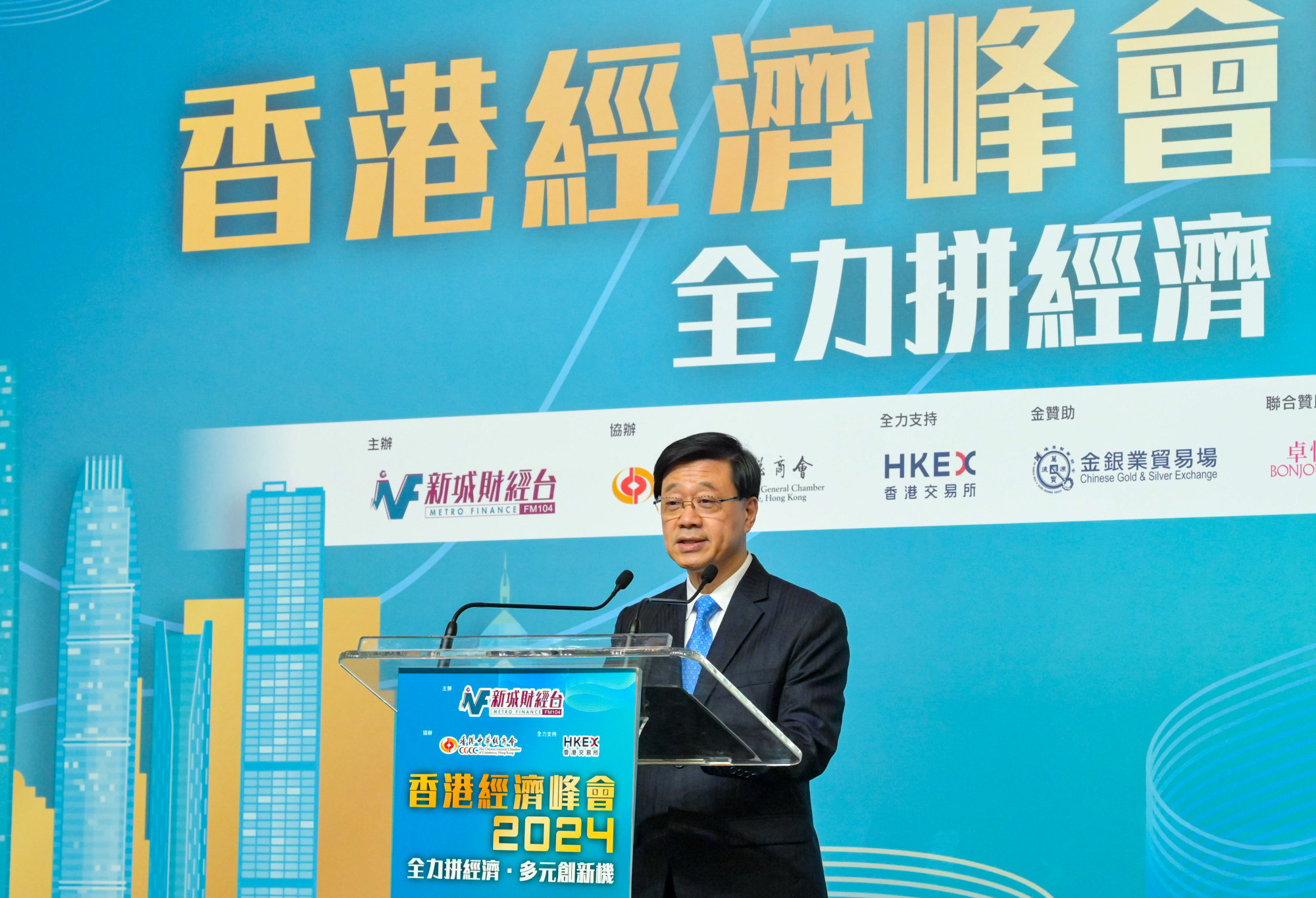
Hong Kong leader points to economic strides as finance chief warns of looming deficit
- Chief Executive John Lee urges residents not to belittle themselves or city’s economic progress since emerging from ‘haze of pandemic’
- Secretary Paul Chan tells lawmakers that Hong Kong expected to record deficit next year but denies claims city’s days as financial hub are over
Hong Kong’s leader has urged residents not to belittle themselves or recent economic strides made after emerging from “the haze of the pandemic”, while the finance chief invited mainland Chinese to witness the city’s strengths for themselves as he denied claims its days as a financial hub are over.
But Financial Secretary Paul Chan Mo-po admitted the city was likely to continue operating at a deficit next year given the economic uncertainties created by geopolitical tensions and high interest rates.
Addressing a summit on Monday, Chief Executive John Lee Ka-chiu seized on a string of economic indicators to show Hong Kong was bouncing back.
Imports grew by 1.4 per cent and exports by 2.6 per cent in October against a year ago, third-quarter private consumption expenditure was up by 6.3 per cent compared with the same period in 2022, and 26.8 million people visited in the first 10 months of this year, he noted.
“I quote so many economic figures in one go because I want to remind everyone that Hong Kong maintains advantages in many areas,” Lee said. “We should not belittle ourselves.”
The city’s leader called on residents to make good use of the “strength, perseverance, flexibility and adaptability that Hongkongers are so well-known for, and to use our innovation and creativity to create a better future”.

But retail industry leaders said the rebound in the sector was not as strong as they expected, as tourism patterns had changed following the end of the pandemic. Visitors from mainland China, for instance, were no longer spending in the same ways, preferring to seek out cultural experiences instead of shopping malls, they said.
Lee urged businesses to encourage local consumption through creative approaches targeting the “90 per cent of Hong Kong people who stayed in the city and did not travel abroad”.
“Whether [consumers] attend nighttime activities and spend locally depends on the efforts of the industry,” he said. “How do you increase attractiveness and make your content more diverse and interesting? What about our services? And how can we use our creativity to beat out our competitors?”
Hong Kong Tourism Board executive director Dane Cheng Ting-yat told summit attendees that organisers of major events, as well as local officials, could “do better” in coordinating venues and dates.
“Everyone wants to avoid the summer months, so autumn and spring months are in high demand,” Cheng said. “Is there a way we can make things work, such as holding more of our own, smaller events in the summer, or making use of other spaces?”
He also noted concerns that local concert venues were too small to attract big acts, citing American pop singer Taylor Swift’s decision to skip Hong Kong during the Asian leg of her current tour.
“These large-scale concerts require massive spaces that can accommodate not just 10,000 to 20,000 people – we’re talking 40,000 to 50,000,” he said.
Separately, finance chief Chan told a Legislative council panel meeting that the city should expect to run at a deficit next year.
“We will know more clearly when we release the budget later, but it may be inevitable,” he said, adding the city was expected to face more “major challenges” in the coming year considering geopolitical tensions and high interest rates.
“In the medium term, we should try to maintain a balance within an economic cycle, so that there can be a deficit in some years and a surplus for others. This is manageable.”
Chan had earlier warned Hong Kong could face a HK$100 billion shortfall, nearly double the HK$54.4 billion estimated in his February budget.
The secretary also took aim at a wave of negative comments on mainland social media claiming the city was no longer a leading financial hub. Chan said “friends” from across the border could come and appreciate for themselves the advantages the city offered.
He described Hong Kong’s status and strength as a financial hub as “incomparable” and said the stock market’s weak performance this year was closely related to the mainland’s economy and bourses.
“The high interest rates internationally and the United States’ continuous suppression of China have also affected financial market sentiment and atmosphere,” he said, adding the government had established a task force dedicated to bolstering liquidity.
